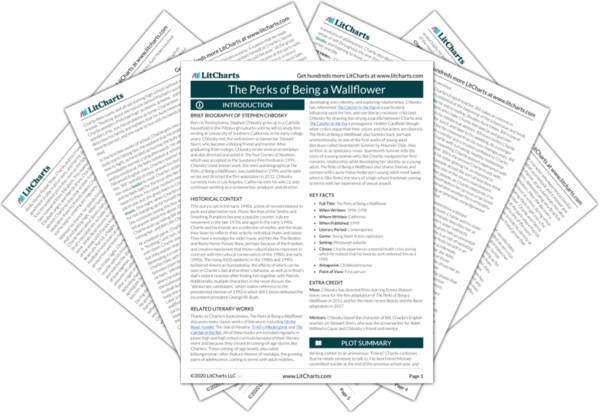and leave for Christmas, vacation and spends the day thinking about his memories of sledding. He walks to the sledding hill and watches young kids as they fly down the hill. Charlie thinks about how they will grow up someday and he wishes that sledding would always be enough. Christmas and his birthday are coming up, and Charlie is glad that they will be over soon because he goes to “a bad place” at this time of year, which started after his died. He was held back a grade because it “got so bad.” He explains that sometimes, things just start to slip away, and he breathes heavily trying to refocus. Trying not to think about it, he writes about his plans for the next few days, which involve Christmas shopping and celebrating his birthday, December 24. gave him
The Catcher in the Rye to read over break, which was Bill’s favorite .
